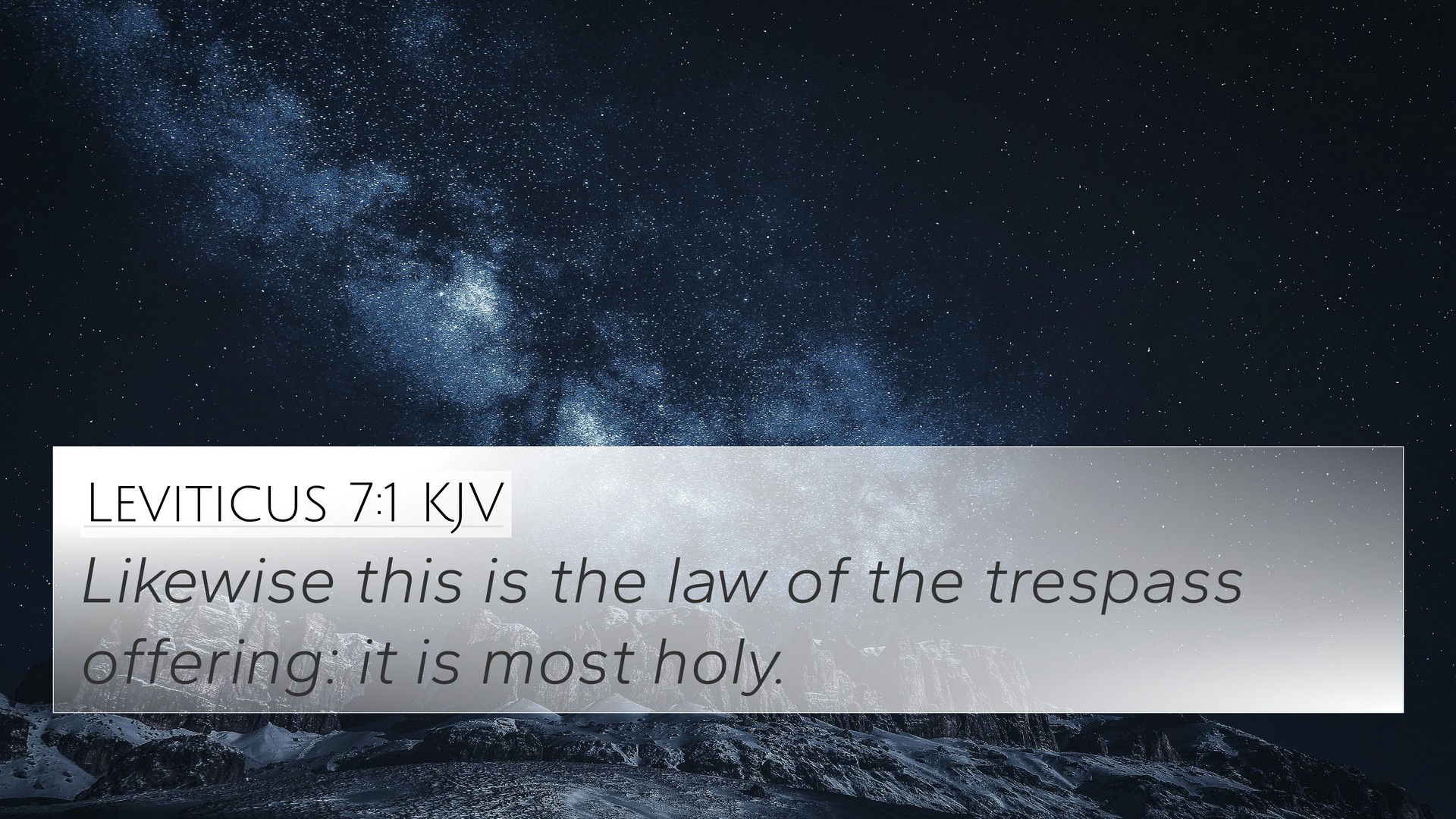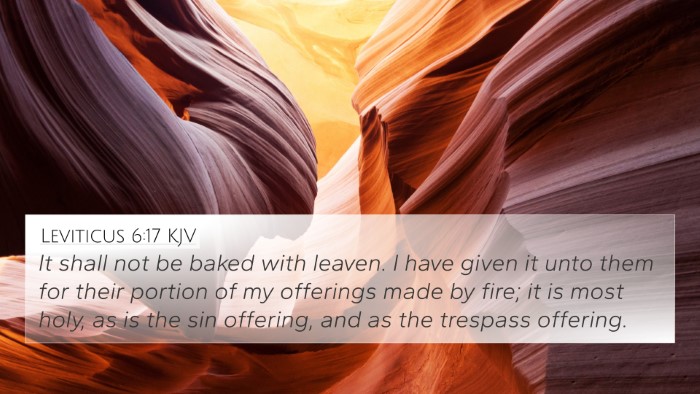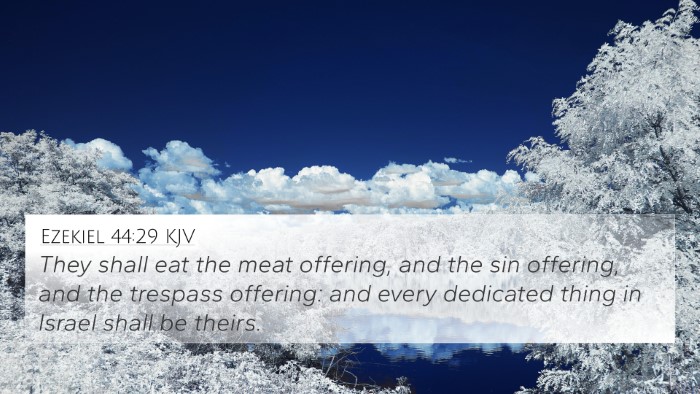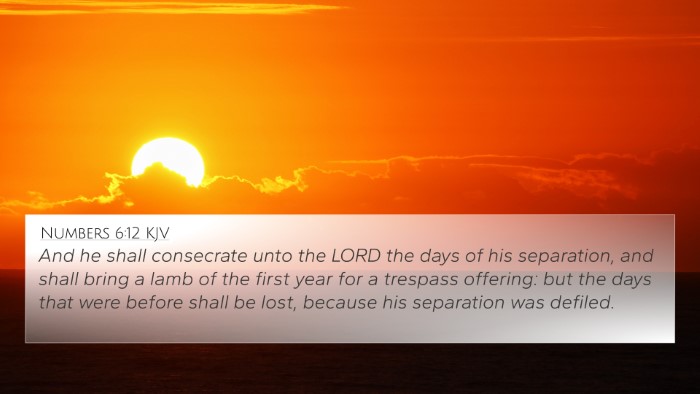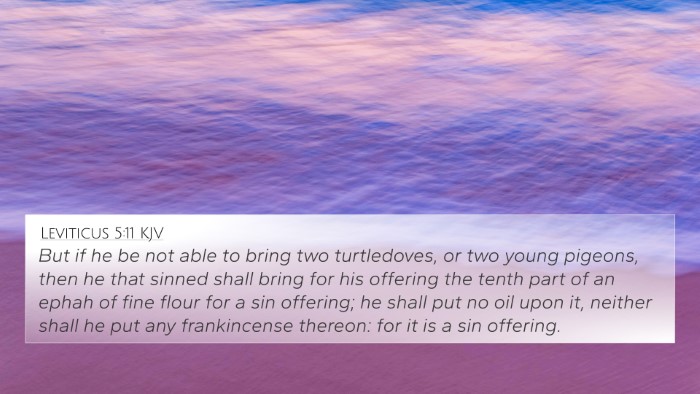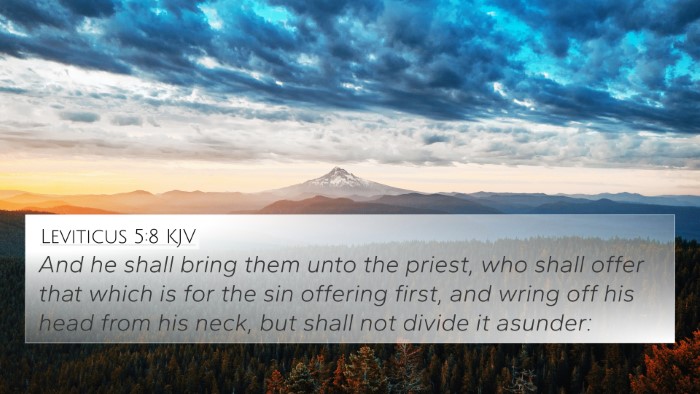Understanding Leviticus 7:1
Leviticus 7:1 presents key elements in the context of the sacrificial system established for the Israelites. This verse discusses the laws regarding the guilt offering, which reflects the intricate relationship between God and His people.
Verse: Leviticus 7:1
“Likewise this is the law of the trespass offering: it is most holy.”
Summary of Meaning
This verse highlights the significant role of the trespass offering, underscoring its sacredness and the importance of atonement. Public domain commentaries provide deeper insights into the implications of the sacrificial laws.
Insights from Commentaries
-
Matthew Henry:
Henry explains that the law of the trespass offering is designed to address unintentional sins that violate the holiness of God’s law. It indicates not only the seriousness of sin but also God’s provision for forgiveness and restoration.
-
Albert Barnes:
Barnes emphasizes that the “trespass offering” denotes the necessity of confession and restitution when one has wronged both God and fellow humans. This offering serves as a reminder of accountability before God.
-
Adam Clarke:
Clarke suggests that the term "most holy" ascribed to the trespass offering indicates its importance in the overall framework of Israel’s worship, underscoring the gravity with which God views sin and the need for purification.
Bible Verse Cross-References
- Exodus 30:12-16: Discusses the taxation for the sanctuary, which relates to personal responsibility in offerings.
- Leviticus 5:14-19: Details the conditions and requirements of the trespass offering.
- Numbers 5:6-8: Highlights the importance of restitution in cases of wrongdoing.
- Isaiah 53:10: Suggests the sacrificial implications related to guilt and atonement in messianic prophecy.
- 1 Peter 2:24: Connects the concept of Christ being the ultimate sacrifice for sin.
- Hebrews 9:28: Establishes the fulfillment of sacrificial offering through Jesus’ death.
- Romans 3:23-25: Bridges the understanding of sin, guilt, and the redemptive work of Christ.
Key Themes and Connections
Through these cross-references, we see that Leviticus 7:1 is intimately connected to both Old Testament practices as well as New Testament teachings about atonement, sin, and redemption. This verse serves as a springboard for exploring numerous biblical themes:
Systematic Linking of Scriptures
The connections between the Old and New Testament are evident in the sacrificial system's evolution, as New Testament scriptures elaborate on the foundational laws set forth in Leviticus. This integrative approach fosters a deep understanding of God’s redemptive plan.
Conclusion: The Importance of Understanding Leviticus 7:1
Leviticus 7:1 encourages believers to acknowledge the serious nature of sin, the need for restitution, and the great provision God has made for our reconciliation with Him. By examining this verse alongside its cross-references, we can appreciate the thread of divine justice and mercy woven throughout Scripture.
Tools for Bible Cross-Referencing
Utilizing a bible concordance or engaging in cross-reference Bible study can enhance your understanding of such verses. Resources that outline bible chain references can assist in discovering thematic connections and facilitate a deeper study of scripture.
Further Study
- How to find cross-references in the Bible: Begin by studying the context of the verse and noting parallel themes.
- Identifying connections between Old and New Testament: Look for fulfillment of Old Testament sacrifices in the New Testament.
- Comparative study of Pauline epistles: Delve into the writings of Paul for analysis on righteousness and atonement.
